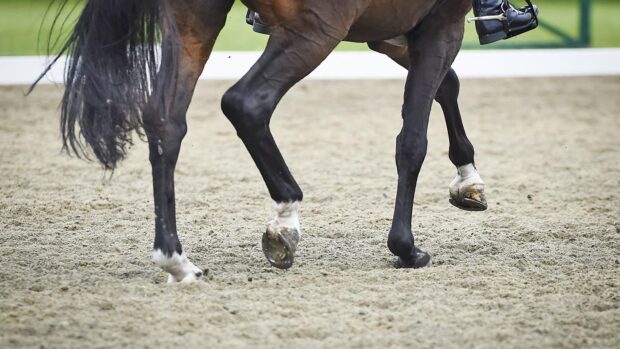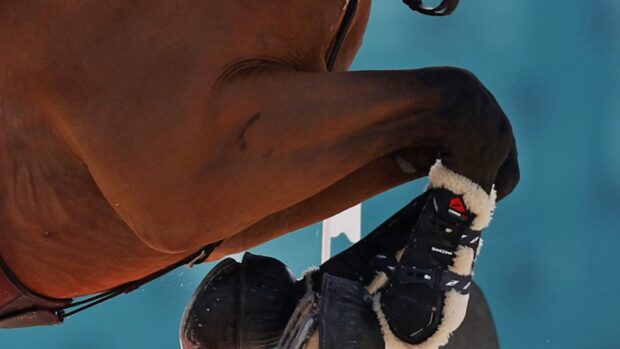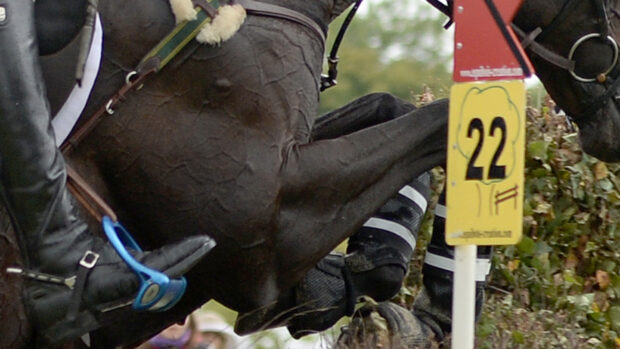FEI field-of-play rules have come under discussion following recent cases in eventing.
H&H reported that Lithuanian rider Aistis Vitkauskas lost his individual Olympic place when he was unable to obtain his final minimum eligibility requirement at Luhmühlen, as he was eliminated across country under the dangerous riding rule (news, 11 July). Aistis disagreed with the ground jury’s decision, but as this was a field-of-play ruling, it was not subject to appeal.
Field-of-play decisions came under the spotlight again in Paris, when Ros Canter and Lordships Graffalo were given 15 penalties for a missed flag at fence 21d during the cross-country phase. Ros believed they had jumped the fence in accordance with the rules, and she and the British team were “confident” that the penalties would be removed once the official footage was studied – but officials ruled that the penalties would remain.
An FEI statement said “the protest was dismissed as the decision was a field-of-play decision, which is not subject to protest”.
British Equestrian’s technical director and eventing performance manager Dickie Waygood said the British camp was “broadsided” by the flag penalties.
“We were absolutely over the moon with Ros and we had no idea about the 15 penalties,” he said. “It is no secret that we pushed it, we appealed it, we went as far as we could with it. But unfortunately it’s a field-of-play decision and the ground jury weren’t budging and they wouldn’t budge with anyone else’s penalties.”
Under the FEI general regulations, protests may be lodged against any person or body involved in an international event or otherwise subject to the jurisdiction of the FEI including for failure to observe the statutes, general regulations or sport rules, or violation of the common principles of behaviour, fairness, or accepted standards of sportsmanship.
But the rules state that there is no protest against ground jury decisions arising from the field of play, “which are final and binding”. These decisions can include, but are not limited to, when the decision is based on a factual observation, whether an obstacle was knocked down, the time taken for the round, whether a horse circled, refused or ran out.
The FEI confirmed to H&H that even if the rules state that a matter such as a field-of-play decision is not subject to protest, national federations can still choose to file a protest for consideration by the ground jury.
“They may raise an issue regarding the processes that were applied in reaching the field-of-play decision (for example, application of the wrong rule or some other procedural defect in the process) that could potentially lead to the protest being upheld, however this is rare,” said an FEI spokesperson.
“The jurisprudence of the Court of Arbitration for Sport on field-of-play decisions is clear and such decisions are only overturned if there is evidence of bad faith, arbitrariness or bias.”
Kate Rocher-Smith was incorrectly given 71 penalties at Pau five-star last October – when she only incurred 31. It was recorded that Kate had two refusals and activated a MIM clip at a fence, when she only had one refusal and the MIM clip. She retired at this fence after knocking herself on the horse’s neck, causing her to sustain a concussion.
When Kate asked the FEI for the horse’s record to be amended, she was told no and it was treated as a field-of-play decision. She was also told she should have objected to the results within 30 minutes of the results being published, but owing to Kate’s concussion, she did not see the results until days later.
After reviewing the video footage, the FEI agreed to give Kate a letter confirming that the scoring was incorrect – but would not update her official record. Kate appealed to the FEI tribunal, but on 14 June her case was ruled “inadmissible” as the tribunal does not have jurisdiction over field-of-play decisions, which are considered “non-appealable”.
Kate told H&H the decision was “disappointing”.
“Riders work hard, and competition results are incredibly valuable. I can understand that you can’t have people a month later saying they didn’t have a pole down – but there needs to be set ways of checking things. You cannot record things inaccurately, and you should be able to dispute this,” she said.
- To stay up to date with all the breaking news throughout the Paralympic Games, Burghley, Horse of the Year Show and more, subscribe to the Horse & Hound website
You might also be interested in:

Country loses Olympic place after elimination under ‘dangerous riding’ rule

‘We were broadsided’: Dickie Waygood and Ros Canter on THOSE Olympic flag penalties

Subscribe to Horse & Hound magazine today – and enjoy unlimited website access all year round




